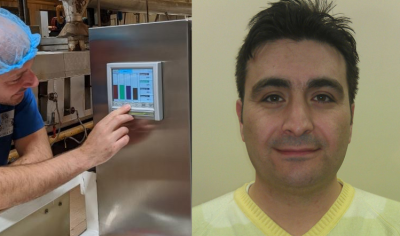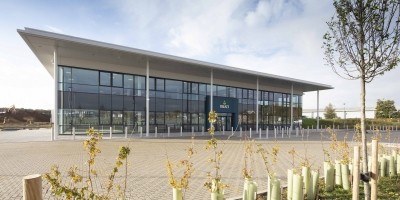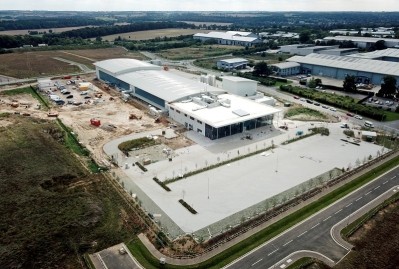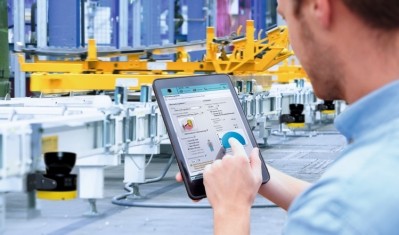Preventing the future, today? The world of preventative maintenance
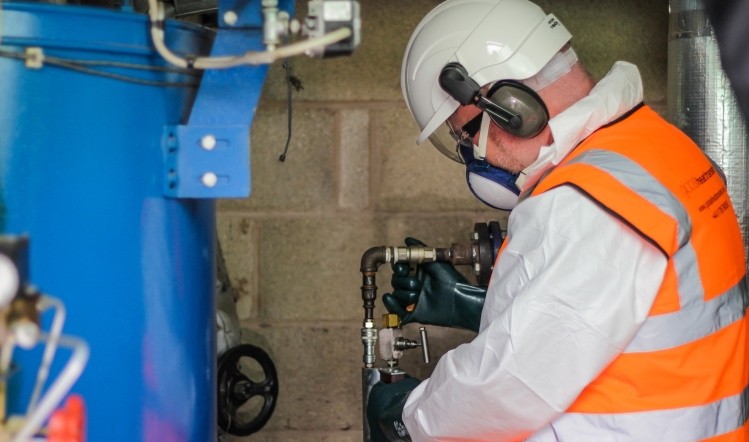
Predicting the future is no longer just the domain of fortune tellers. That power now lies in the hands of factory operators across the UK in the form of preventative maintenance, which is being enhanced continually by rapid advances in artificial intelligence (AI) and machine learning.
Line managers can now use complex digital models to predict when and where a line is likely to break down before it gets the chance to do so, saving businesses repair costs and eliminating downtime.
But is everyone in the industry truly ready to embrace this digital future? And what does it mean for companies starting the path to integrating digital preventative maintenance systems into their production?
Technology giant Siemens believes food manufacturers have the capability to start implementing the systems needed to future-proof their factories through automated monitoring.
Keith Thornhill, head of food and beverage at Siemens Digital Industries, explains human error is reduced by taking equipment failure predictions out of workers’ hands. The process of ordering spare parts can also be automated at the same time, freeing staff up for other tasks. “All of this is here and now,” he says. “It’s not futuristic; it’s all being played out on a regular basis.”
The human element
That’s not to say humans have been completely removed from the equation. No matter how much data is collected in the quest to prevent a potential break down, people still need to be involved at some level to interpret what that data means. Just knowing a part of the line is moving in an irregular way doesn’t mean the AI knows how to fix the issue.
“AI and technology haven’t got the answer for everything, otherwise it would be a case of lights-off production,” adds Thornhill. “As that data is known and the AI starts to understand it better, then of course the systems will be more intuitive. At the moment, it’s very much ‘we are predicting there could be a problem, so we might as well inform the people to take a closer look at it’.
“We’re not at the stage where it automatically says there definitely is a problem [on the line], so do something about it. The people part of it is absolutely critical to all of this.”
On the other hand, not everyone in the manufacturing community agrees that the tech behind preventative maintenance has kicked off in quite such an explosive way.
Chris Jones, director at consultancy Turner & Townsend Suiko, feels many food manufacturers are only really taking their first steps towards implementing predictive systems into their factories. An element of caution is necessary when approaching the world of AI, he says.
“For us, we say, ‘are the foundations in place?’,” explains Jones. “The first thing we explore around maintenance would be to measure downtime; lots of companies don’t measure it particularly well and that causes its own problems.
‘Maintenance journey’
“Our first step is to understand where a company is on its maintenance journey. If it has really good data collection and a really good planned maintenance schedule, then we’d ask why it wasn’t delivering what it needs to deliver.”
For Jones, the first step is getting data collection right. This, he says, serves as a stepping stone towards implementing an effective preventative maintenance programme and he feels the industry is still a few years away from every food factory being able to solve mechanical and electrical problems before they need fixing.
“The big boys are still looking at step one: let’s get good accurate data in and solid planned maintenance schedules,” he adds. “Once we’ve got that, then they can start to look at what components need to change before they fail.”
Regardless, he agrees with Thornhill on the continued need for human beings to remain involved in following up diagnostics with solutions. Fixing problems that crop up in a factory, either reactively or proactively will continue to be the province of engineers for the time being, Jones says.
Whatever stage of the preventative maintenance journey individual food and drink processors are currently on, there’s no doubt that predicting the future offers tangible benefits.
Three main benefits
Robert Golightly, product marketing lead at software provider AspenTech, believes there are at least three benefits from having a predictive or preventative maintenance system in a food factory, depending on the role you work in.
“The most obvious is that if a machine is repaired before it has a severe breakdown, then the maintenance and costs are less,” says Golightly. “With advance warning, you can actually schedule around the downtime, thus minimising the lost production opportunity.”
But the benefits extend far beyond the cost of machine repairs and line downtime, a metric many providers use to measure the worth of their systems, he says. “Other factors are of equal or greater importance. Look at the issue of safety, for instance; when these big industrial machines break, people get hurt. If you can predict the need for maintenance in advance, that’s a benefit. You’re five times more likely to have an accident when doing maintenance in an emergency versus planned.”
Another aspect is the damage to the environment that unplanned maintenance could have – an issue easily avoided if the problem is circumvented by a predictive system. As Golightly explains: “Not so much in food and beverage, but to some degree, when you have unplanned disruptions in production, that’s when you have environmental releases, greenhouse gases or water pollutants.
“So there’s the operational benefit from better production and less maintenance, the safety benefit and the environmental benefit.”
Despite contrasting views on how prepared the food industry is to embrace AI and preventative maintenance systems in their factories, it’s hard to deny the practical benefits they offer manufacturers.
